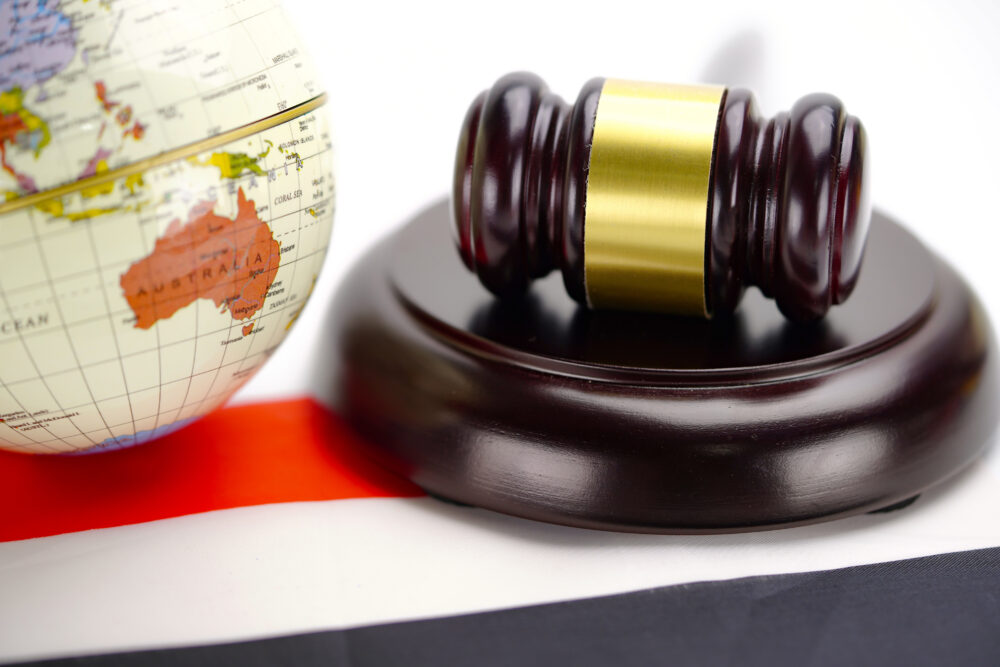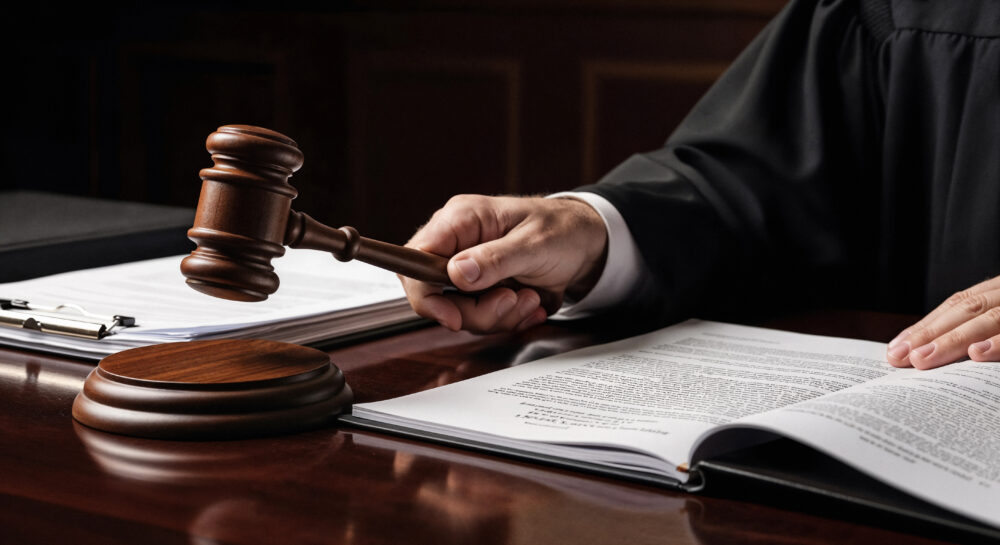Corresponding to the rapid development of international trade in Vietnam, the number of business and commercial disputes with foreign elements is also increasing. A civil case is considered to have a foreign element in Vietnam when (1) at least one of the participating parties is a foreign entity, (2) the participating parties are Vietnamese entities, but the establishment, change, implementation, or termination of the civil relationship took place abroad, or (3) the participating parties are all Vietnamese entities, but the civil relationship’s object is abroad. In principle, Vietnamese private international law respects the contract parties’ agreement on a dispute resolution body. However, in some instances, Vietnamese law stipulates that only Vietnamese Courts have jurisdiction, regardless of parties’ agreements. This is the Court’s exclusive jurisdiction, which will be examined in the article below.

1. Types of Court’s jurisdiction in resolving trade disputes with foreign elements
The Court’s jurisdiction to resolve civil cases with foreign elements in general, including business and commercial cases, is divided into general jurisdiction and exclusive jurisdiction. What is the legal implication of each jurisdiction?
General jurisdiction of the Court
For disputes falling under the general jurisdiction of the Court, the claimant is not required to choose a Vietnamese Court to resolve the dispute but can choose a foreign Court or another dispute resolution body (e.g., domestic, foreign commercial arbitration) to initiate a lawsuit if that choice is pursuant with the law of the country where the case is submitted. Types of disputes falling under the general jurisdiction of Vietnamese Courts are specified in Clause 1, Article 469 of the 2015 Civil Procedure Code (“CPC”), including:
- The defendant is an individual who resides, works, or lives for a long term in Vietnam.
- The defendant is an agency or organisation whose headquarter is in Vietnam or whose branch or representative office is in Vietnam for cases related to the operation of such branch or representative.
- The defendant has properties in Vietnam.
- Civil cases related to civil relations that are established, changed, or terminated in Vietnam or objects of which are properties in Vietnam or acts performed in Vietnam.
- Civil cases related to civil relations which are established, changed, or terminated outside of Vietnam but involve rights and obligations of Vietnamese individuals or organisations/agencies, individuals residing in Vietnam, or organisations/agencies headquartered in Vietnam.
Exclusive jurisdiction of the Court
For disputes under the Court’s exclusive jurisdiction, only the Court of that country has the right to resolve the case. Compared with general jurisdiction, the Court’s specific jurisdiction has the following characteristics.
- The purpose of establishing the separate jurisdiction is to protect national interests, public order, and the necessary rights and interests of citizens and legal entities of that country.
- Separate jurisdiction is imposed on the litigants. This means that when the case falls under the separate jurisdiction of the Vietnamese Court but is resolved by another dispute resolution body, such judgment will not be recognised and enforced in Vietnam.
Case example: Ms. Oh (based in Korea) brought a lawsuit against Company S (Vietnamese company) at the Seoul Central District Court, asking the Court to force Company S to fulfil its payment obligation to Ms. Oh under the Contract to transfer the capital contribution at Company P (Vietnamese company) between Ms. Oh and Company S. In February 2016, the Seoul High Court of Korea issued an Appeal Judgment, forcing Company S to pay Ms. Oh the amount of 400,000 USD and interest corresponding to the late payment period. On that basis, Ms. Oh applied for recognition and enforcement in Vietnam of the Foreign Court Judgment in Vietnam.
However, in Decision No. 28/2020/QDKDTM-PT dated June 29, 2020, the High People’s Court in Ho Chi Minh City determined that, in essence, the assets Ms. Oh transferred to Company S, including 100% capital contribution in Company P and all factory buildings, machinery… attached to an area of 10,000 m2, were real estate located in City T2, Province L (Vietnam) and granted a Certificate of land use rights and ownership of houses attached to land by the People’s Committee of Province L. Therefore, considering both general and specific jurisdiction, the dispute between Ms. Oh and Company S fell under the jurisdiction of the Vietnamese Court. Therefore, the Court of First Instance of Vietnam’s decision not to recognise and enforce the Korean Court’s judgment in Vietnam was valid.
The High Court’s determination that the dispute between Ms. Oh and Company S was a real estate-related dispute has caused some mixed opinions. Nevertheless, it shows that the Vietnamese Court will not recognise and enforce a judgment of a foreign court resolving a dispute under the exclusive jurisdiction of the Vietnamese Court.
2. Disputes falling under the exclusive jurisdiction of the Vietnamese Courts
According to Clause 1, Article 470 of the CPC, Vietnamese Courts have exclusive jurisdiction over the following business and commercial cases.
- Cases concern rights to real estate located in the territory of Vietnam.
This regulation is consistent with international practice. Given the sensitive nature of territorial sovereignty, national laws and international treaties often stipulate that civil cases related to real estate will only fall under the jurisdiction of the courts of the country where the real estate is located.
In Vietnam, disputes with foreign elements related to rights to real estate can include some of the following: disputes related to capital contribution using land use rights, capital transfer disputes where the capital contribution is related to real estate/real estate projects, disputes related to leasing, subleasing, or transferring real estate.
Case example: In 2018, Company N (Vietnamese company) initiated a lawsuit against DWS Company (Korean company) related to DWS Company’s receipt of the capital contributions’ transfer from 02 Korean companies (Company P&D and LVC Company) at VK H Joint Venture Company. VK H was a Vietnamese joint venture established in 2007 based on a contract between N, P&D, and LVC to implement a high-rise residential area named The Mark (District 7, HCM). In 2015, P&D and LVC had been declared bankrupt by the Korean Court. The administrator appointed by the Korean Court had signed contracts on behalf of P&D and LVC to transfer the entire capital contributions of P&D and LVC in VK H to DWS. N later sued DWS at the People’s Court of Ho Chi Minh city, requesting the Court not to recognise these capital contribution transfer contracts.
The case was heard on appeal by the High People’s Court in Ho Chi Minh city. In the Appeal Judgment no. 52/2019/KDTMPT dated September 11, 2019, the High Court stated that P&D and LVC, as foreign joint venture parties, and N established VK H Joint Venture to implement the housing project. Therefore, the dispute over the contract to transfer capital contributions of P&D and LVC in VK H to DWS was a civil case related to rights to real estate in the territory of Vietnam. Therefore, the resolution of this case must fall under the exclusive jurisdiction of the Vietnamese Court as prescribed in Point a, Clause 1, Article 470 of the Civil Procedure Code.
- Cases in which the parties are allowed to choose a Vietnamese Court to resolve the dispute according to Vietnamese law or an international treaty to which Vietnam is a member, and the parties agree to choose the Vietnamese Court.
This regulation demonstrates respect for the parties’ right to self-determination in civil relations in general and business and commercial relations in particular, which is consistent with current international practice.
Resolving disputes with foreign elements in Vietnam can be very complicated, costly, and time-consuming. As analysed above, judgments, decisions, and awards of foreign courts or arbitration panels will not be recognised and enforced in Vietnam if the case falls under the exclusive jurisdiction of the Vietnamese Court. Therefore, to maximally protect their legal rights and interests, the parties, being the claimant or the defendant, should contact a lawyer with experience in business and commercial dispute resolutions involving foreign elements in Vietnam for timely and comprehensive advice.
Disclaimers:
This article is for general information purposes only and is not intended to provide any legal advice for any particular case. The legal provisions referenced in the content are in effect at the time of publication but may have expired at the time you read the content. We therefore advise that you always consult a professional consultant before applying any content.
For issues related to the content or intellectual property rights of the article, please email cs@apolatlegal.vn.
Apolat Legal is a law firm in Vietnam with experience and capacity to provide consulting services related to Dispute Resolution and contact our team of lawyers in Vietnam via email info@apolatlegal.com.





































